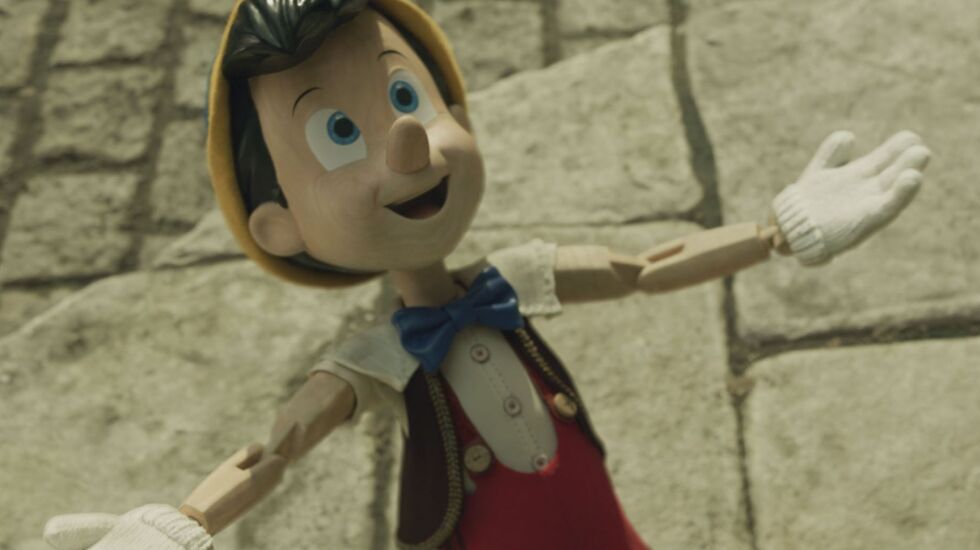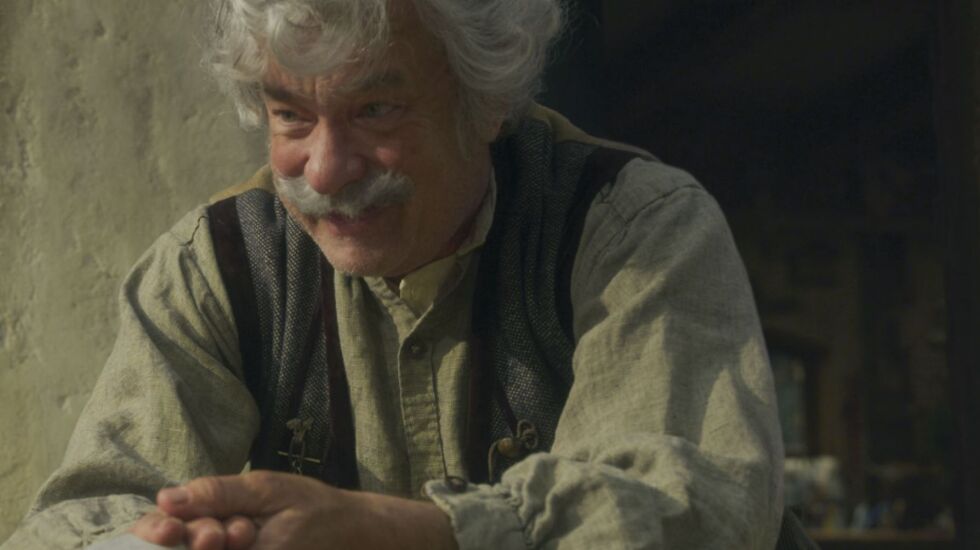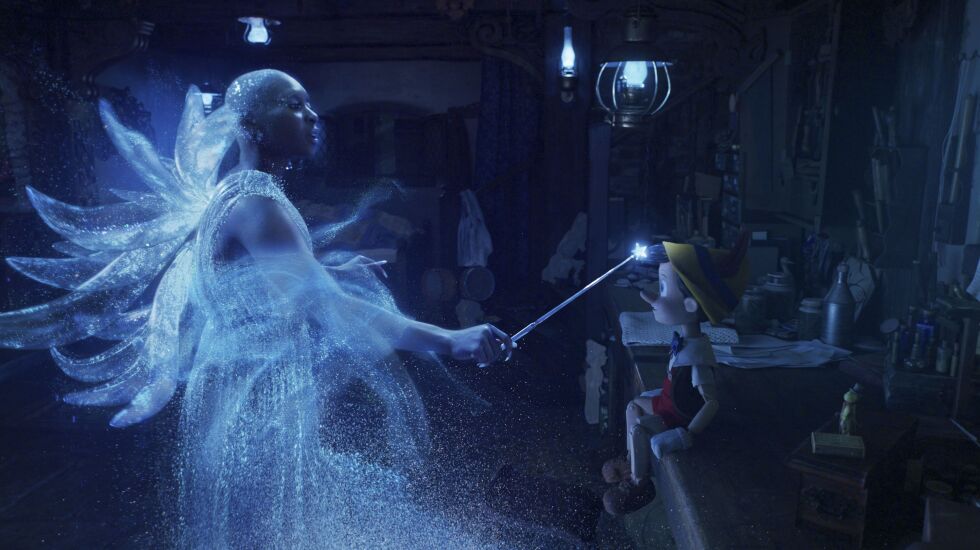
My nose is not growing when I tell you the year 2022 brings us not one, not two, but THREE takes on the “Pinocchio” fable, starting with the currently streaming but mostly forgotten, Russian-made “Pinocchio: A True Story” from earlier this year, which featured Pauly Shore (!) as the voice of the wooden lad, and continuing with two decidedly more prestigious projects: the Robert Zemeckis live-action musical fantasy “Pinocchio,” debuting this week on Disney+, followed by the release of Guillermo del Toro’s stop-motion story, which is scheduled for a November release.
That’s a LOT of Pinocchio, especially considering we’ve had so many adaptations of Carlo Collodi’s 1883 tale through the years — most notably Disney’s 1940 classic, which remains one of the most beloved and beautiful and acclaimed animated films of all time. Do we really need another, and then another, version of “Pinocchio”? In the case of the Zemeckis film, which stars Tom Hanks as the live-action Geppetto, Joseph Gordon-Levitt as Jiminy Cricket, Benjamin Even Ainsworth as Pinocchio and Cynthia Erivo as the Blue Fairy, the answer is something along the lines of “Sure, why not.”
I know: That’s hardly a thundering ovation. There are times when the story (like Pinocchio himself) seems to meander this way and that and lose momentum, but Zemeckis (“Forrest Gump,” “Back to the Future,” “The Polar Express”) has long been a master at creating new and exciting visual ways to tell a story, and this is no exception. Every frame of “Pinocchio” is filled with rich and lush detail — at times this almost looks like a 3-D film — and the performances, whether live action or voiced, are universally excellent.
“Pinocchio” goes for some meta-verse humor on more than one occasion, starting with the opening sequence in which the animated Jiminy Cricket is bouncing along when he hears the voice of Jiminy Cricket the narrator, who tells him, “I’m the narrator telling this story post-facto. I know exactly what’s going to happen to you on this adventure.”
“Really?” says the onscreen Jiminy. And off we go. (You can also look for some nifty, anachronistic references to certain Disney animated characters in another early scene.)

A few months after Tom Hanks affected a Hungarian accent in “Elvis” that was so over the top he sounded like a villain in a 1960s cartoon series, he goes for a lower key but still slices up plenty of ham as the Italian woodcarver Geppetto, who lives with his cat Figaro and his goldfish Cleo (both animated and quite adorable creations) in his cozy and charmingly cramped home/workshop. One lonely night, Geppetto finishes carving a new puppet out of pine, a puppet he dubs Pinocchio, and I don’t think it’s much of a spoiler alert to reveal Geppetto makes a wish upon a star, which later than night brings the arrival of the Blue Fairy, who transforms Pinocchio into a walking, talking puppet.
“Jumping jeepers, he’s alive!” exclaims Jiminy, and let’s face it, there’s always been a slightly disturbing, underlying “Frankenstein” element to this story. The Blue Fairy appoints Jiminy Cricket as Pinocchio’s conscience.
If Pinocchio can prove he is brave, truthful and unselfish, if he can learn the difference between right and wrong, he’ll become … a real boy! If he tells a lie, well, it’ll be as plain as the nose on his face.
With director Zemeckis and the production design and CGI wizards consistently delivering colorful, screen-popping visuals, Pinocchio sets out for his first day of school but finds himself tangled up in all sorts of harrowing adventures, encountering the likes of Honest John (Keegan-Michael Key), who becomes Pinocchio’s self-appointed talent agent (“to be famous is to be real, until then you’re just a nobody!”); the cruel and exploitative puppet show owner Stromboli (Giuseppe Battiston); and the Coachman (Luke Evans), who takes Pinocchio to the deceptively tempting Pleasure Island, which looks like a Vegas version of an amusement park for kids and contains some genuinely scary elements.

There are a couple of brand-new supporting characters, and four original songs, but most of the main players and scenarios are quite familiar, and we’re also treated to some lovely renditions of time-honored classics from the 1940 film, with Erivo doing a fantastic, Broadway-type version of “When You Wish Upon a Star.”
I also loved the way this version ends, but I’ll say no more than that, as this is Jiminy Cricket’s tale to tell. Really.







